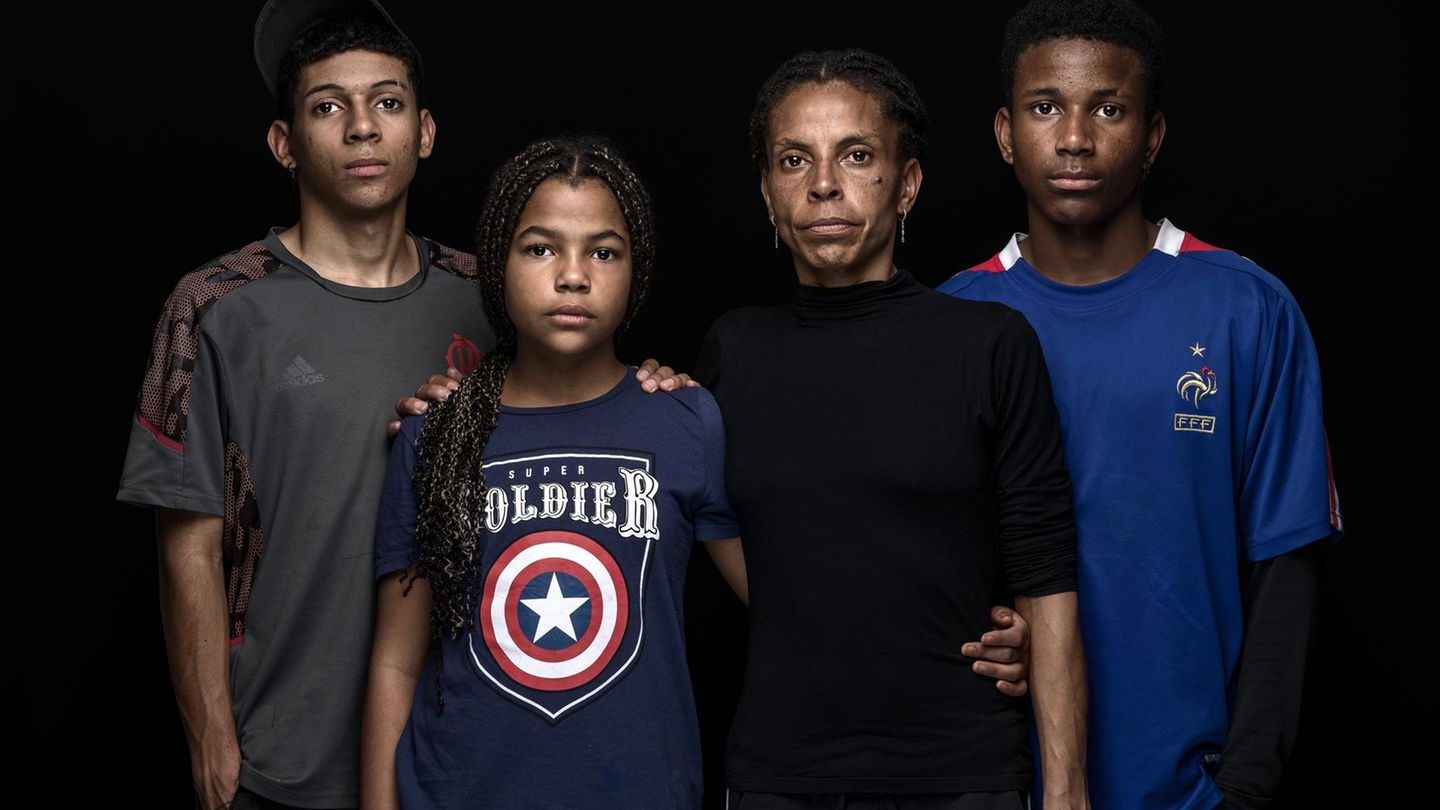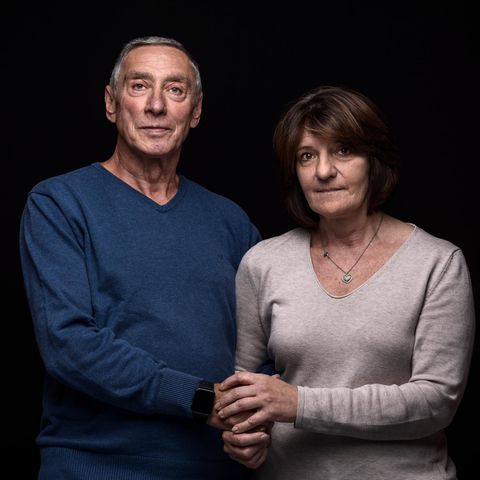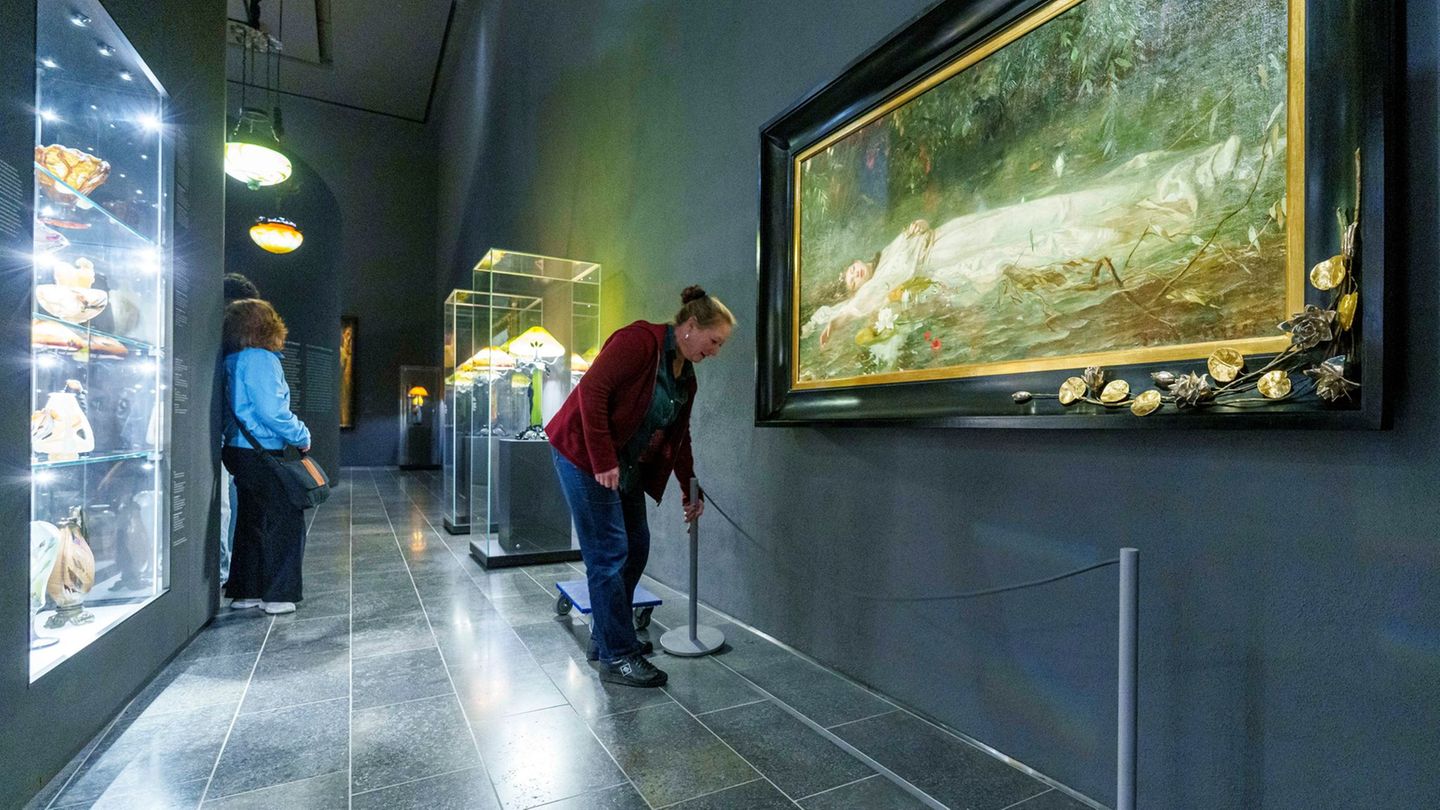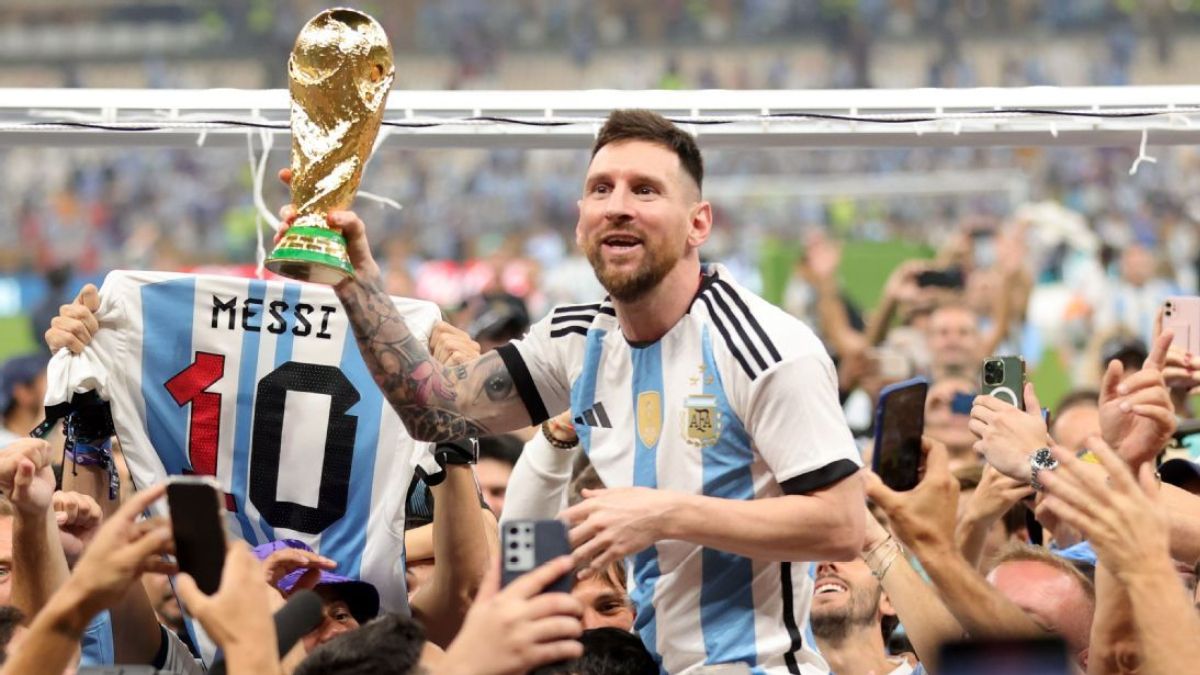Copy the current link
Add to watchlist
What do I want? Seeing my mother relaxing on the couch in front of the TV. She hasn’t done that in a long time. To see my children achieve something. You should achieve more in life than me. And I finally want to cook for myself again for my family and myself. A big Brazilian barbecue would be nice.
All of this seems so far away at the moment. We live in an emergency shelter. It’s a decent hostel. We are all safe. But we didn’t want to live like that.
My name is Raquel Fantoura. I am 40 years old and come from Ilha do Pavão, an island suburb of Porto Alegre in the far south Brazil. I work as a cleaning lady, like my mother used to.
Suddenly there was a crash behind me. That was my house collapsing
I’ve known how to deal with water since I was a child. Here in the south of Brazil we always had floods. When it rained heavily, we always moved all our valuable belongings to the first floor. I did the same thing that evening at the end of April 2024. When I woke up in the morning, the water was already up to my mattress. I then drove to work, over the big bridge into the city. It won’t be that bad, I thought. Only later, when I came home, did I realize: There is no going back. Luckily no one had been home during the day.
But I still had to save my two cats. They were sitting on the roof. As I swam away with them, there was suddenly a terrible crash behind me. That was my house collapsing. I didn’t have the courage to look back. I just kept swimming.
We lived there for 22 years. Me and the children in front. My mother in her own little house in the backyard.
“I lost my house. And my dignity”
I lost more than one house that day. The water washed away my previous life. A piece of me has been missing since then. I feel undignified. All my life I made sure the children had what they needed. And now I can’t do that anymore.
I remember standing on that big bridge on the day of the flood. The military gradually brought the people from there to safety. I stood on the bridge – and for a second I thought: Jump. It wasn’t easy.
My family gave me the strength to carry on. I thought about my mother. I am her only child. And of course to Kaua, Lourdes and Kelvin, my three children. And I hoped that I could go home again when the flood was over. That something would remain. But things turned out differently.
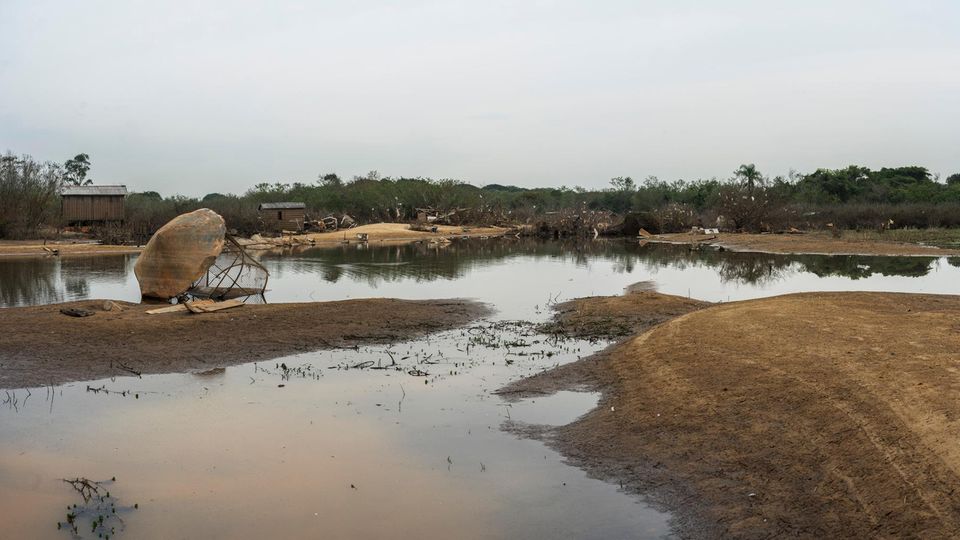
The children still haven’t gotten over the loss of their home. After all, the little one now has more friends here in the emergency shelter than before on the island. And she has her cell phone, which is very important. She tries to live a normal life. Her brothers are more reserved. Luckily, I was able to enroll her in a new school. There they can learn and have a chance at a normal life.
“Climate change? I’ve never heard of that before”
I feel like I’ve lost a war. It’s a chaos of emotions that’s hard to describe. I don’t think there is a word that accurately describes it yet.
Climate change? I’ve never heard of that before. Maybe it’s true that what happened here has to do with things elsewhere in the world.
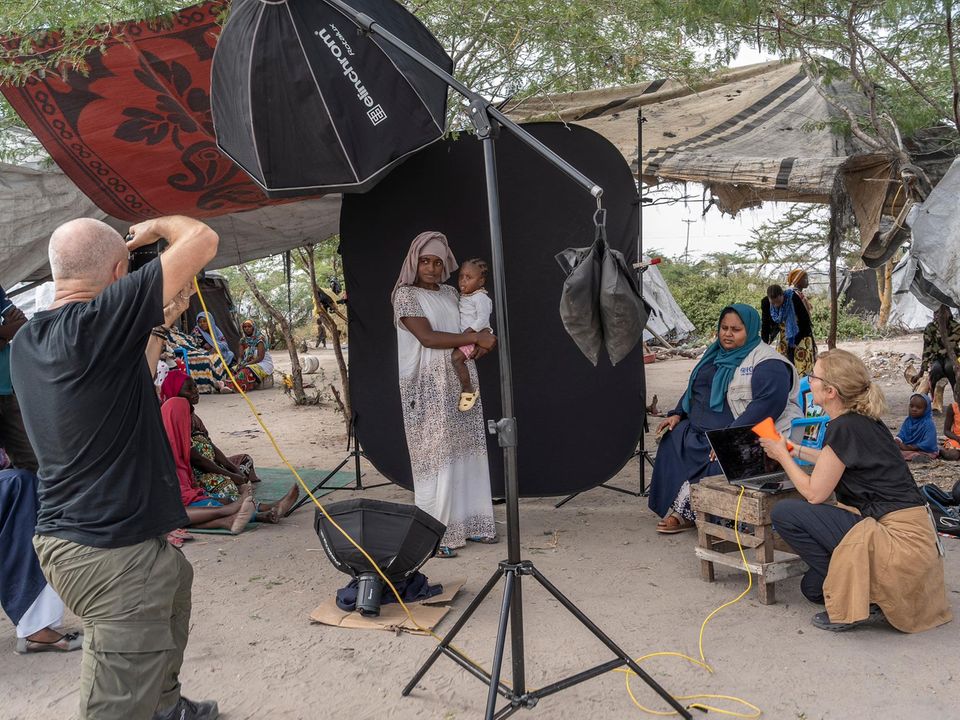
How the report “The Homeless” came about
The Swiss photographers are building their mobile photo studio Monika Fischer and Mathias Braschler where the protagonists are. Sometimes in a Mongolian yurt, sometimes in a mud hut in Iraq or, as here, in the Kenyan bush. The neutral background is part of the concept. “We want to show that everyone is the same,” says Fischer. The “Displaced” documentary was supported by the UN World Food Program (WFP) and the International Organization for Migration (IOM). star-Author Steffen Gassel accompanied the research in Germany, Switzerland and Iraq. All photos, videos and texts of the exclusive star-Reports can be found on this special page.
But you know what: I believe in God and Providence. That everything in life happens for a reason. And I know that God has something better in mind for me.
At the end of all this I will celebrate my victory. I just don’t know when yet. I’m so tired.
I still have one wish: a house. Somewhere where it’s safe. Where the water no longer reaches us.
Protocol: Steffen Gassel (based on an interview by Monika Fischer and Matthias Braschler)
This content is part of the “The Homeless” project, which documents the consequences of climate change. All photos, videos and texts of the star-Reports can be found on this special page.
Photos and videos: Mathias Braschler, Monika Fischer
Texts: Steffen Gassel
Participation in photo production and research: USA – Jane Bittle, Sue Weber, Tasha Guidry, Ron Beiner; BRAZIL – Manoela Martins, Andre Leao, Isadora Carvalho, Ana Andria; GUATEMALA – Claudia Jo Rios (WFP), Alberto (WFP); ITALY – Luisa Brandl; SWITZERLAND – Manuel Marques Pereira (IOM), Cecilia Zerbini (IOM), Chloe Lavau (IOM), Cyril Kammer; PHILIPPINES – Mitzi Navarro (IOM), Alicia Follosco (IOM), Renmarc, Herlyn Orosca (WFP), Adelaida Escurel; KENYA – Sharif Faisal (IOM), Ali Khandija (IOM), Cynthia Meru (IOM), Madina Gwiye Said (Red Cross); BANGLADESH – Kun Li (WFP), Tasnim Tabassum (WFP); IRAQ – Saif Altatooz (WFP), Suhad Abdelrazzaq, Mohammed Almoumin; MONGOLIA – Munkhtuya Davaajav (IOM), Daniel Sam (IOM), Onon Nyamsuren (IOM); GERMANY – Lena von Zabern (WFP), Martin Frick (WFP), Martin Rentsch (WFP)
Source: Stern
I have been working in the news industry for over 6 years, first as a reporter and now as an editor. I have covered politics extensively, and my work has appeared in major newspapers and online news outlets around the world. In addition to my writing, I also contribute regularly to 24 Hours World.

